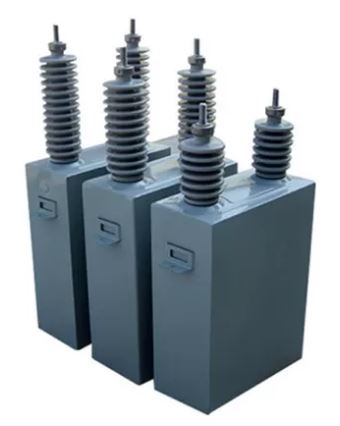Tel: 0129-4001010 Phone: +91 730 321 5033
Email: cs@absoluteveritas.com
BIS CERTIFICATION FOR SHUNT POWER CAPACITORS IS 13585 (PART 1):2012
In today's competitive landscape, maintaining market presence without a certified, high-quality product can be challenging. Obtaining a BIS license may also be essential for selling products in the Indian market. To achieve BIS certification and ensure product quality, manufacturers must adhere to the specified Indian standards.
Let's delve deeper into at IS 13585 (Part 1): 2012 for Shunt power capacitors of the non - Self - Healing type for ac systems.
This Indian Standard (Part 1), mirroring IEC 60931-1: 1996 from the International Electrotechnical Commission (IEC), was embraced by the Bureau of Indian Standards following the advice of the Power Capacitors Sectional Committee.
This standard covers 'Shunt power capacitors of the non-self-healing type for alternating current systems with rated voltages up to and including 1000 V - Part 1: General - Performance, testing, and rating - Safety requirements - Installation and operation guidelines.
The aim of this standard is to:
-
Establish consistent regulations for performance, testing, and rating.
-
Develop specific safety rules
-
Serve as a manual for installation and operation
This standard outlines capacitor specifications. Capacitors must adhere to quality, safety, and performance criteria as per the standard.
TESTS
The subsequent test must be conducted for Shunt Power Capacitors.
1) Routine Tests
-
Capacitance Measurement and output calculation
-
Measuring the tangent of the loss angle of the capacitor.
-
Voltage tests between terminals
-
Voltage tests between terminals and container
-
Test of the Internal Discharge Device
-
Sealing test
2) Type Tests
-
Thermal stability test
-
Discharge test
-
Destruction test
-
Disconnecting test
Before being delivered, each capacitor must undergo routine testing conducted by the manufacturer. Type tests are carried out to verify that the capacitor conforms to the specified characteristics and operational requirements detailed in this standard concerning design, size, materials, and construction.
The company needs to declare the types of capacitors they plan to include under the License. The License's scope might be restricted depending on the manufacturer's manufacturing and testing capacities.
LABELLING AND MARKING
Labeling and marking must adhere to IS 13585 (Part 1):2012/ IEC 60931-1:1996 standards. Each capacitor unit is required to display the specified information outlined in the standard.
The Standard Mark (ISI Mark) will be affixed to the product if it complies with all specification requirements. To use the standard mark (ISI Mark), the manufacturer needs to obtain a BIS license from the Bureau of Indian Standards. This license is granted following a successful assessment of manufacturing infrastructure, quality control, testing capabilities, and production processes.
PROCESS FOR BIS ISI MARK CERTIFICATION

BIS CERTIFICATION PROCESS
Acquiring a BIS license requires a comprehensive review of manufacturing infrastructure, quality control abilities, testing resources, and production procedures. This thorough assessment guarantees that products not only adhere to regulations but also prioritize consumer safety and reliability.
NOTE:
For comprehensive guidance on the BIS ISI Certification process, please explore:
WHY USE ABSOLUTE VERITAS?
Absolute Veritas is a prominent organisation from the private sector of India primarily dealing with the Inspection, Testing, Audits, Certification of products& consulting services to various industries in India and worldwide, ensuring compliance with regulatory standards and industry requirements. Offering a comprehensive range of services including product certification, testing, training, auditing, and compliance services, Absolute Veritas helps manufacturers and importers achieve higher production efficiency and quality standards.
Absolute Veritas (AV) will handle end to end pre-registration request, sample preparation, documentation, testing and application process for FMCS Certification
For any questions regarding the most recent update on FMCS registration licenses, please reach out to us via email at cs@absoluteveritas.com



